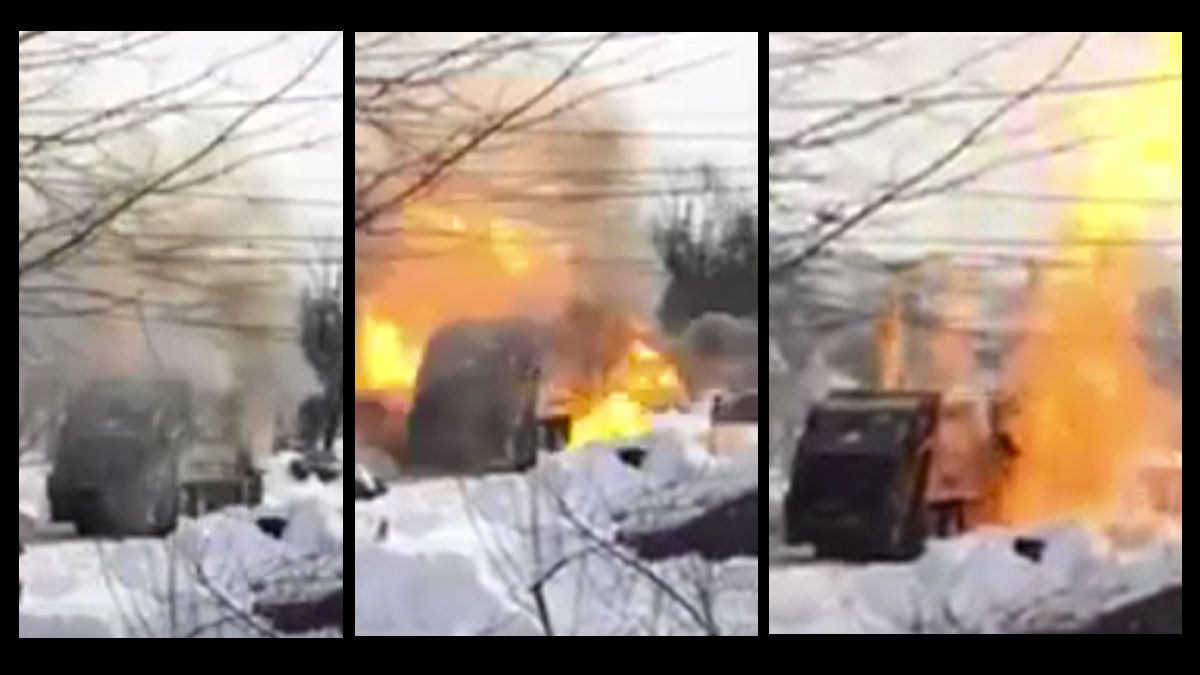Garbage truck explosion in neighborhood outside Trenton called a rarity [video]

After a garbage truck running on compressed natural gas exploded this week in Hamilton, New Jersey, experts on use of the fuel said it was very unusual.
But that’s small comfort to residents in the neighborhood outside of Trenton where the burning truck spewed a fireball like a missile into the front of a nearby house. No one was injured, but three other homes also sustained damage.
Hamilton police Captain James Stevens said the fire began as an electrical fire in the truck’s battery and spread to one of the gas tanks. When the tank failed to vent, it exploded.
Despite their combustible potential, compressed natural gas trucks have a good safety record, said David Biderman, the head of the Solid Waste Association of North America.
“There are thousands of garbage trucks fueled by natural gas on the roads in the United States,” he said. “Fortunately, this type of incident happens not just rarely, but virtually never.”
Biderman is aware of only one other similar case, which occurred last year in Indianapolis.
In some respects, natural gas trucks might be even safer than their traditional diesel counterparts.
“It would not surprise me if certain types of fires are actually more rare in natural gas trucks because you don’t have hoses that crack when you’re running on natural gas,” Biderman said.
Natural gas is a popular choice for garbage trucks because it’s more fuel-efficient than diesel and can offer municipalities long-term cost savings and a more environmentally friendly way to pick up refuse.
Some vehicles are even designed to run on the methane produced from the landfills they help stock. Municipalities began adding the trucks to their fleets about six or seven years ago; they now make up about half of all new waste rigs coming online.
The latest accident, Biderman said, will inspire even more vigilance from crews.
“People in the waste industry are going to be very, very careful and double and triple check the maintenance of these trucks to make sure this type of incident doesn’t happen again,” said Biderman.
WHYY is your source for fact-based, in-depth journalism and information. As a nonprofit organization, we rely on financial support from readers like you. Please give today.




